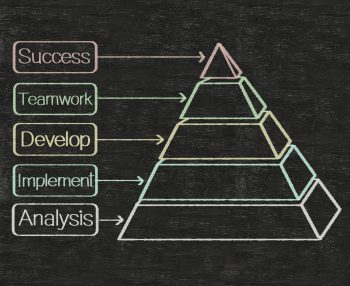
It is easy to wonder, what benefits as an organization (or as a manager) are you going to receive from using behavioral assessments in your employee / leadership development programs?
Below are six good reasons why behavioral assessments and the insights they provide are of benefit to you and your organization.
Assessment feedback encourages the leader or employee to become self-managed
- When assessing for performance/professional development I recommend that participants read through their Winslow Report feedback at least three times, and then to “sit with their results” for at least a week.
- Many times, upon first glance, a participant will miss the patterns of their behavior or only react negatively (“This can’t be me – the assessment got it wrong!”) to their “less than they desire” trait scores. (Interesting how they never react negatively to their “higher than expected” trait scores, those are always spot on!)
- During coaching sessions around assessment results, always ask the participant to start thinking about where their trait scores show up and which behaviors are important to their professional success. Once identified, you can then help them identify the action steps they want/need to take around behaviors that are holding them back.
A specific and customized developmental plan can be created
We have all attended trainings and been momentarily motivated, and then when returning to the “work-a-day” world, our actual results and continued follow through on behavioral change is disappointing. By integrating assessment feedback into your employee’s professional development plan, you will be able to review each worker’s ideintified action steps, and coaching or training needs.
Also, the ability to view Group Profiles enables you to see the strengths and weaknesses of the team as a whole and where any common issues (low trust for example) or gaps may be. With this information will enable you to focus training and coaching dollars on identified needs with laser-accurate precision.
Morale is raised
When coaching, I often hear that having assessment feedback that not only points out deep strengths but also areas of concern, has allowed the participant to identify practical steps to alter any “unproductive” behavior. Many times someone who has struggled with their behavioral blind-sightedness for years, suddenly has a “name” for a behavior they have not been able to identify. I often hear comments such as, “That’s my low Endurance again, I’m giving up too soon,” or “That’s my high Nurturance, always making excuses for unprofessional behavior in my people.” Identifying and naming, brings hope.
Results are immediate
I have found that when challenged, people are eager to prove quickly they can overcome the undesirable implications of their less than favorable scores. Sometimes during a coaching session, when someone wonders how to implement the desired behavioral change, I’ll instruct them to “act as if” a certain trait score was higher (or lower if necessary).
For example, if someone has a very low level of Assertiveness, resulting in a failure to voice their opinion when needed, I’ll encourage them to “act like a 7” just for this next one hour meeting. Once the meeting is over, they can go back to being a 2 again. This simple technique allows people to be themselves, while providing the opportunity to experiment with a new behavior that is more productive, and many times they soon adopt this new behavior in more and more situations. It is amazing to watch the self-modification that takes place as people try a stronger (or softer) behavior level.
Retention is impacted tremendously
Instead of promoting people to leadership because of technical competence, or time in service, or hiring them based on subjective data, these vital management decisions will now be made with hard, objective information. Do they have the communication and self-confidence to lead; do they have enough Conscientiousness to be aware of the needs of the company (and those around them), or Trust and Nurturance to encourage those working under their leadership?
Performance Evaluations can take on a completely new meaning
With assessment results in hand, a manager can discuss specific behavioral traits against performance standards instead of the hasty and generalized “meets expectations” comments that often don’t mean anything.
- “How do you view your progress in reducing conflict in your communication with Charles?” (Due to high Assertiveness, low Control and low Nuturance.)
- “Do you feel you’ve made headway in being more decisive?” (Due to Low Autonomy and low Self-Confidence.)
Assessment feedback will add specific direction, meaning and value to your Performance Review process.
Take a moment and consider the ways that behavioral assessment feedback would be of help to you as you lead and develop those within your organization. It is never too early, or too late, to implement a behavioral development program and positively shift the behaviors of those you support and lead.
*** For help assessing your current workforce or screening candididates please contact Lindsay at 206.533.9700 / lindsay@windridgeconsulting.com



